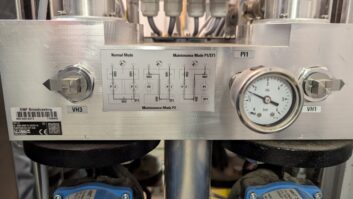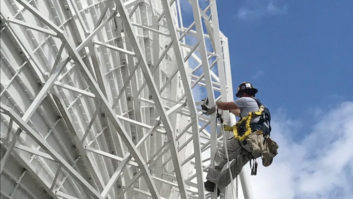The MMTC believes a key to ensuring diversity and fairness in the hiring process is to audit stations to ensure nondiscriminatory practices are taking place.
Those are the suggestions issued by the Multicultural Media, Telecom and Internet Council in response to comments filed by the National Association of Broadcasters and ACA Connects — which are all part of the Federal Communications Commission’s request for reply comments on the commission’s EEO Compliance and Enforcement Notice of Proposed Rulemaking.
[Read: 82 Small Broadcasters Weigh in on EEO Rule Changes]
A series of initial comments on the issue was filed by MMTC in early September whereby the organization recommended four steps the commission should take immediately to improve EEO enforcement: increase the percentage of audits undertaken each year; institute deeper audits of randomly selected stations; install a whistleblower phone line; and publish a primer with best practices and model EEO programs.
Both the NAB and ACA, however, expressed concerns about the suggestion to increase the number of audits. The NAB said the FCC’s EEO audit program is already a material drain on local broadcasters’ resources. “Also, NAB knows of no other context — apart from instances where the commission grants money to an outside entity — where the commission aggressively audits compliance with its rules,” the NAB said. “Rather, in nearly every other instance, the agency adopts rules and then expects compliance. If an entity is found to have violated FCC rules, it faces various consequences.”
“This is the same approach the commission should take to EEO compliance,” the NAB said, adding that fewer than 1% of audits have revealed a violation of EEO rules.
But MMTC argues in later comments that just because discriminatory actions aren’t being found, doesn’t mean they’re not happening. EEO compliance is uniquely audit-worthy because compliance is seldom knowable except by insiders, the organization said. “Discrimination may be a subtle process which leaves little evidence in its wake,” the organization said by way of quoting the D.C. Circuit court. “On the other hand, engineering rule misconduct is generally discernable by members of the public.”
MMTC also counters NAB’s claims that existing reporting efforts are burdensome on smaller-market stations. Rather, MMTC said, nearly all of the information that stations must provide is already maintained as part of customary modern personnel practice.
“In a professional work site, none of this information has to be created just for an audit,” the MMTC said. “Consequently, the actual cost of responding to an audit is negligible.”
ACA also addressed the issue of cost in its filing comments, saying that it opposes enhanced onsite audits because the cost would outweigh the benefit. In response, MMTC said that the commission can be faithful to its EEO goals and its cost/benefit mandate by conducting a pilot program to test expanded audits.
Comments on the FCC’s EEO proposed rulemaking can be seen in the commissions’ ECFS database using Media Bureau Docket Number 19-177.







